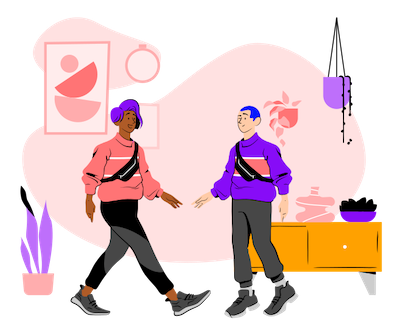|  | | | Hello passionate language learner, In this edition of our newsletter, we uncover the beauty of the proverb '朋友一生一起走', and dive into the meanings and usage of words like 强大 (strength), 罢工 (strike), 眼泪 (tear), 保险 (insurance), and 团结 (solidarity). Join us on this exciting linguistic journey! |
| |
| |
|
|
强大 qiang da The Chinese word '强大' (qiang da) is used as an adjective to describe someone or something that has great power, influence, or capability. It is often used in various contexts such as physical strength, influence, capabilities, etc. For example, it can be used to describe a powerful country, a powerful engine, a powerful person, etc. Here's how to use it: 他的意志力非常强大。 tā de yì zhì lì fēi cháng qiáng dà. 请尽量保持强大的正面观念。 qǐng jìn liàng bǎo chí qiáng dà de zhèng miàn guān niàn. 这个公司有强大的研发团队。 zhè gè gōng sī yǒu qiáng dà de yán fā tuán duì.
| |
|
罢工 bà gōng The Chinese word '罢工' is used to describe a work stoppage caused by the mass refusal of employees in a business to work. This is usually in response to employee grievances, and is similar in context to the use of 'strike' in English. Here's how to use it: 我们必须罢工以抗议不公平的工作条件。 Wǒmen bìxū bà gōng yǐ kàngyì bù gōngpíng de gōngzuò tiáojiàn. 由于罢工,我们办公室关门了。 Yóuyú bàgōng, wǒmen bàngōngshì guānménle. 罢工行动使公司遭受了重大损失。 Bàgōng xíngdòng shǐ gōngsī zāoshòule zhòngdà sǔnshī.
| |
|
眼泪 yǎn lèi The Chinese word '眼泪' is used to denote a tear in English. It is often used in the context of expressing emotions such as sadness, joy, or overwhelming feelings that lead to the production of tears. Here's how to use it: 这场电影让我流下了眼泪。 Zhè chǎng diànyǐng ràng wǒ liú xià le yǎnlèi. 她忍住眼泪说再见。 Tā rěn zhù yǎnlèi shuō zàijiàn. 我试图强忍眼泪,但还是哭了出来。 Wǒ shìtú qiáng rěn yǎnlèi, dàn háishì kū le chūlái.
| |
|
保险 bǎo xiǎn The Chinese word '保险' means insurance in English. It is used in the same context as in English - referring to a policy from a company that compensates for particular potential future losses or damages in exchange for regular payments. Here's how to use it: 他们的家具都有保险。 Tāmen de jiājù dōu yǒu bǎoxiǎn. 我决定增加我的人寿保险额度。 Wǒ juédìng zēngjiā wǒ de rénshòu bǎoxiǎn édù. 保险对于每个人都非常重要。 Bǎoxiǎn duìyú měi gèrén dōu fēicháng zhòngyào.
| |
|
团结 tuánjié The Chinese word '团结' is used in a similar context as in English. It can often be seen in political, social, or team situations to express cohesion and collaboration. It can be used in phrases like '团结一致' (unanimous unity) or '团结力量大' (unity is strength). Here's how to use it: | |
|
🤔🤔🤔 朋友一生一起走 Péngyǒu yīshēng yīqǐ zǒu | |
|
| You received this email because you signed up at LangBites.co. Click here to unsubscribe. |
| |
|
|
|

